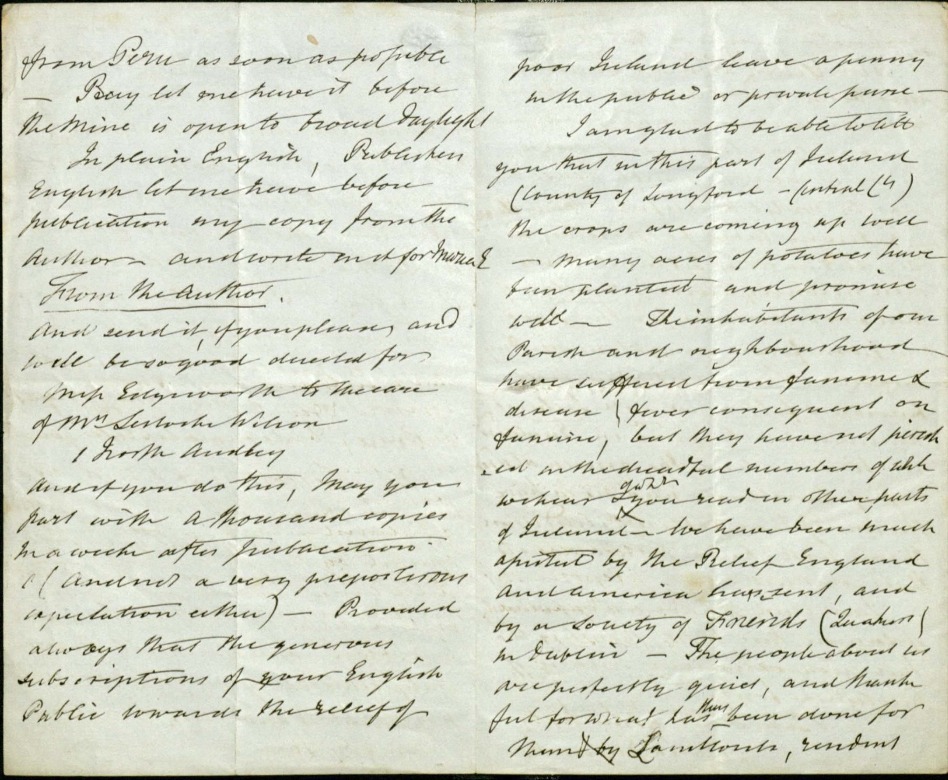Maria Edgeworth Letters
Finished! Looks like this project is out of data at the moment!
Thank you to our volunteers! Over 250 transcribed and searchable letters are now available at mariaedgeworth.org, and a new batch of letters will be uploaded to Zooniverse in mid-February.

Help transcribe the correspondence of the Anglo-Irish Regency novelist Maria Edgeworth (1768-1849).
Learn moreYou can do real research by clicking to get started here!
Zooniverse Talk
Chat with the research team and other volunteers!
Maria Edgeworth Letters Statistics
View more statsKeep track of the progress you and your fellow volunteers have made on this project.
Every click counts! Join Maria Edgeworth Letters's community to complete this project and help researchers produce important results. Click "View more stats" to see even more stats.
Percent completeBy the numbers
Message from the researcher
Maria Edgeworth was a remarkable individual who was in many ways ahead of her time. She wrote learned texts on educational practices and was a prolific writer of tales and novels. She attempted to correct and atone for her prejudices. Her correspondence reveals her liberal-mindedness, curiosity, and interests in the natural sciences and politics. And her novels are - even 200 years later - immensely enjoyable reads.
Maria Edgeworth LettersAbout Maria Edgeworth Letters
The Anglo-Irish author Maria Edgeworth (1768-1849) was the most commercially successful novelist of her age and a favorite author of Jane Austen's. She was an extraordinary woman writing at the turn of the nineteenth century whose ideas on gender, race, religion, education, and science have important ramifications today. Her life in Ireland spanned the upheaval of the 1798 Rebellion to the beginning of the Great Famine, and her network included correspondents in Europe, North America and India. She was one of the first authors of fiction specifically written for children. However, a comparatively small number of her letters have been published. The Maria Edgeworth Letters Project (https://mariaedgeworth.org/) seeks to remedy this gap in scholarship by creating a digital space where Edgeworth’s full correspondence is made available, searchable, and is eventually annotated through a collaborative open-access project. Transcriptions created through the Zooniverse platform will be checked, encoded, and eventually added to our digital archive for researchers.